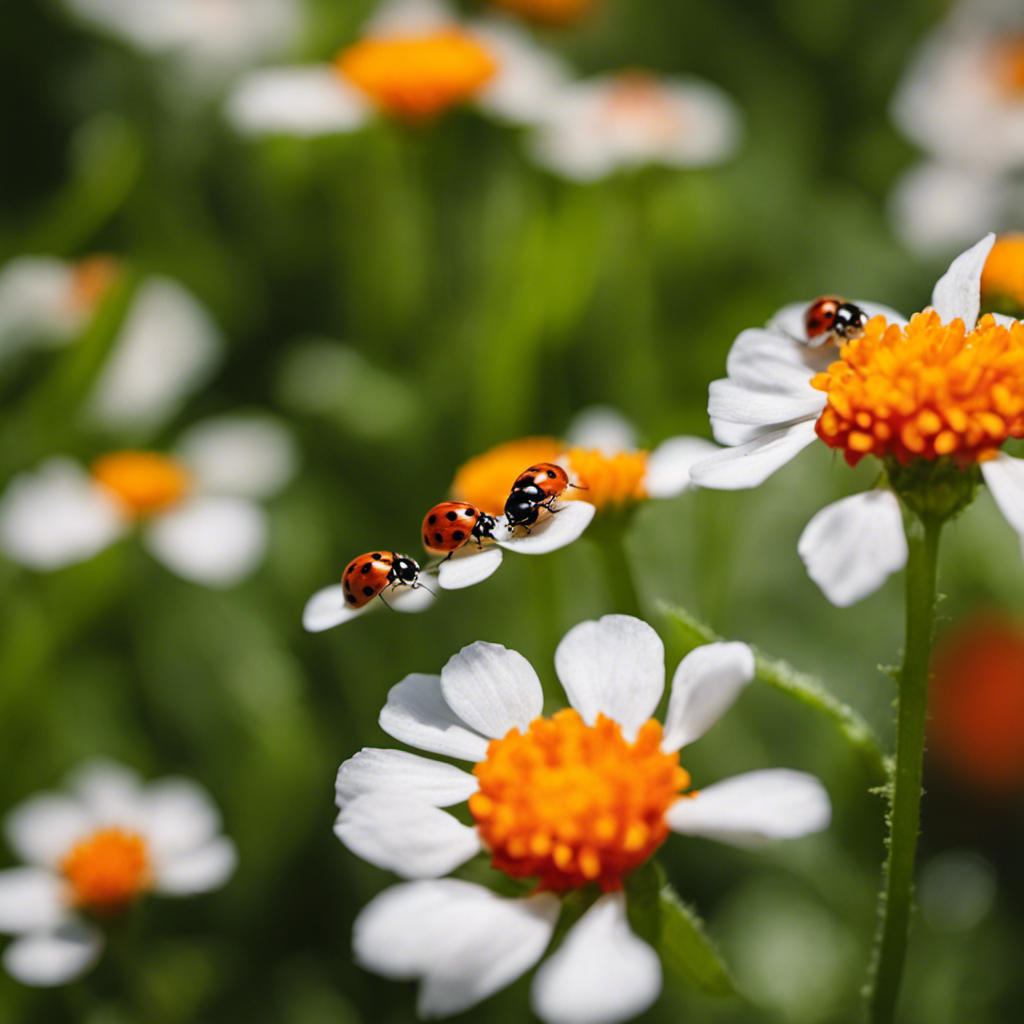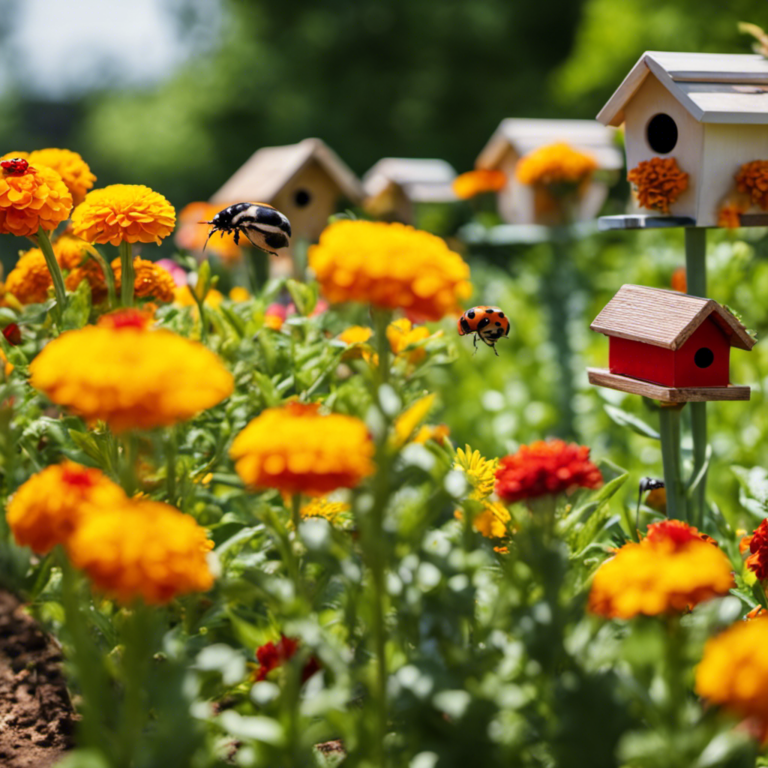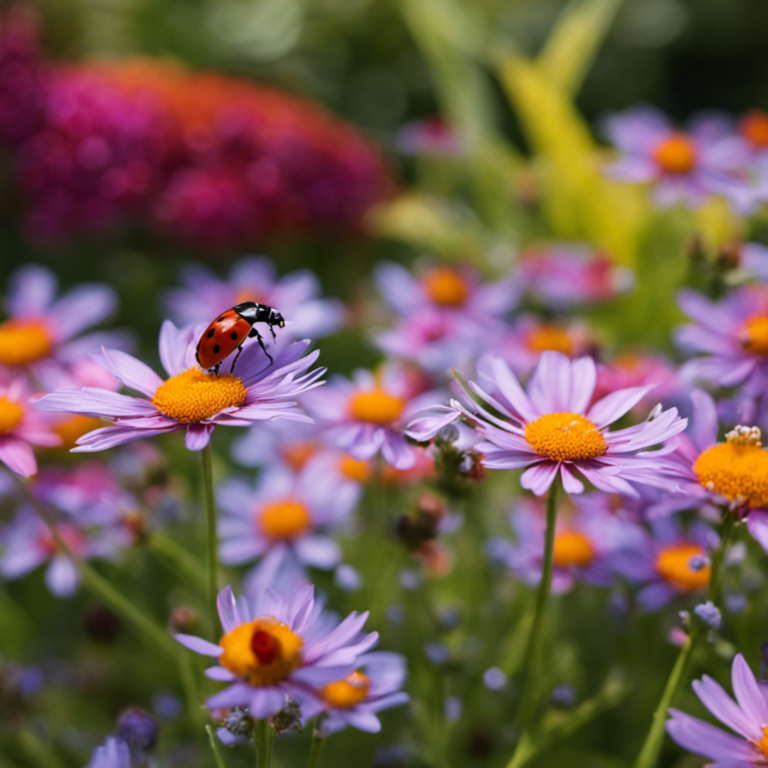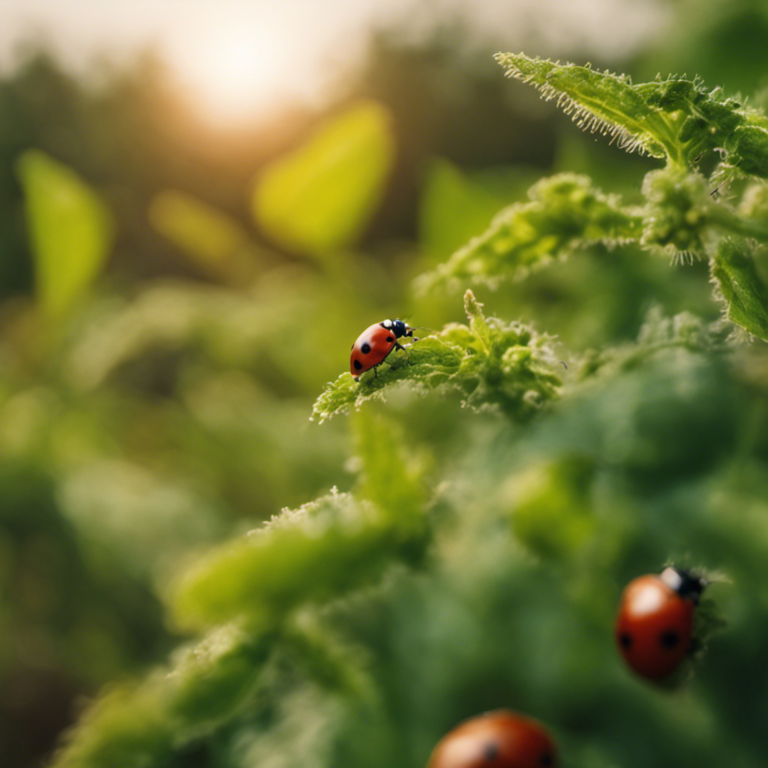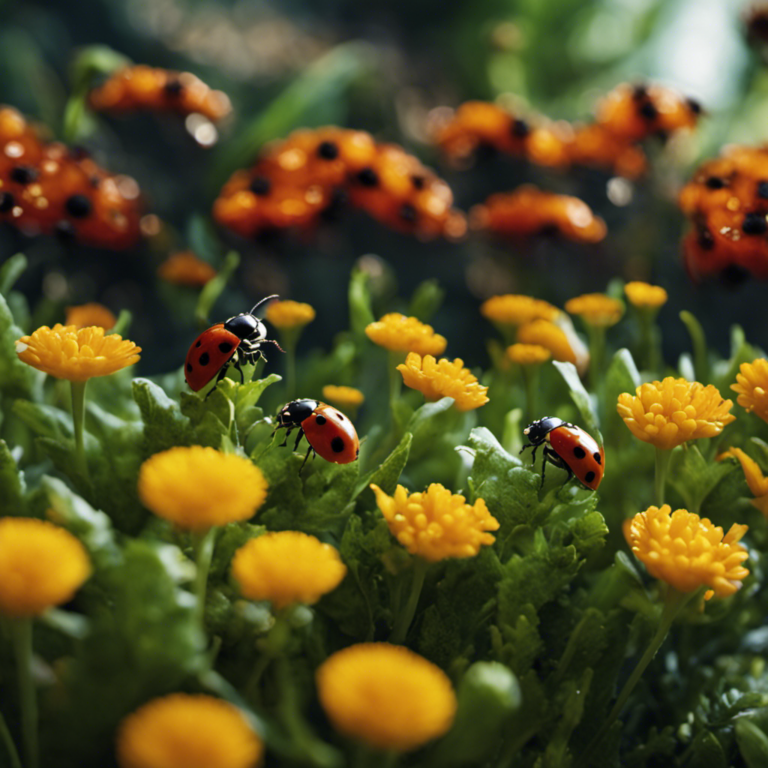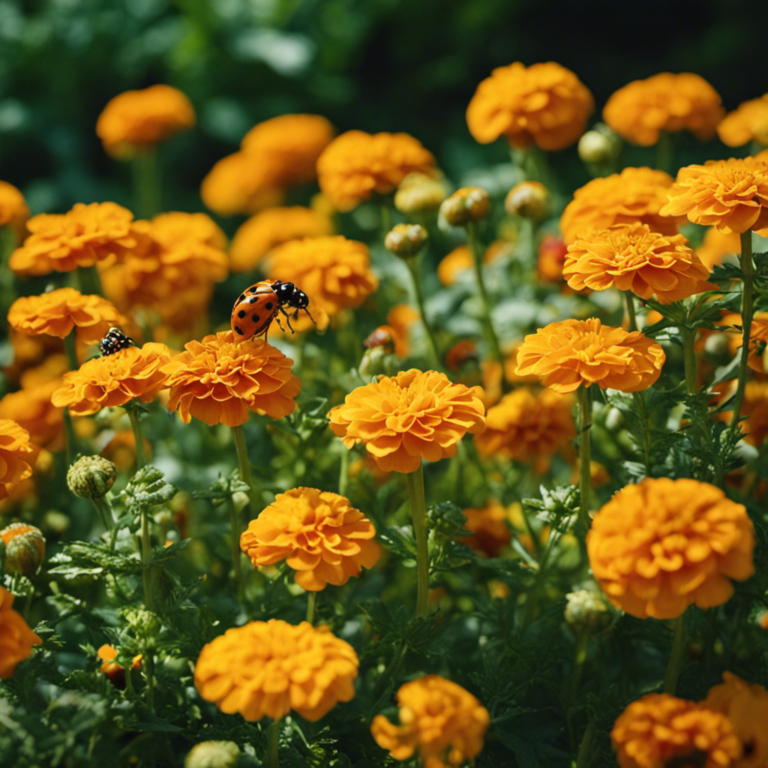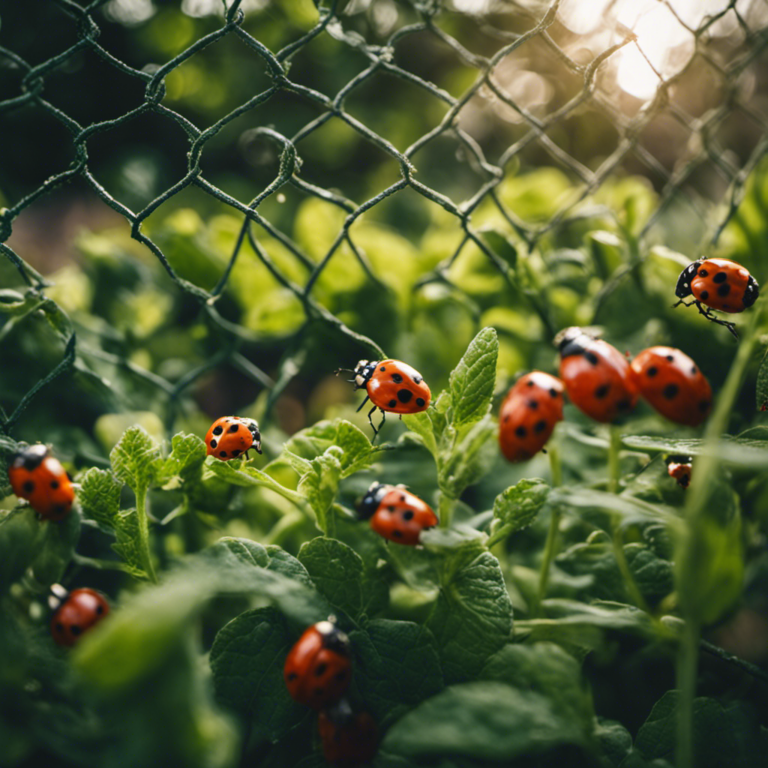Are pests causing problems in your organic garden? Don’t worry! We have the solution you need.
Our nine eco-friendly methods will help you effectively manage those pesky critters without harming the environment. These practical techniques, backed by science, will safeguard your precious plants.
Say goodbye to chemical-laden pesticides and welcome a thriving garden. It’s time to take control and prioritize the well-being of Mother Nature.
Remember, a healthy garden starts with responsible pest management.
Key Takeaways
Implementing eco-friendly methods like companion planting, biological control, physical barriers, homemade pest sprays, and crop rotation can effectively manage pests in your organic garden. These methods offer practical and science-based solutions that contribute to a healthier and more sustainable environment. By embracing these techniques, you can enjoy a thriving garden while minimizing harm to the ecosystem. So why not give them a try? Your garden and the planet will thank you.
Companion Planting
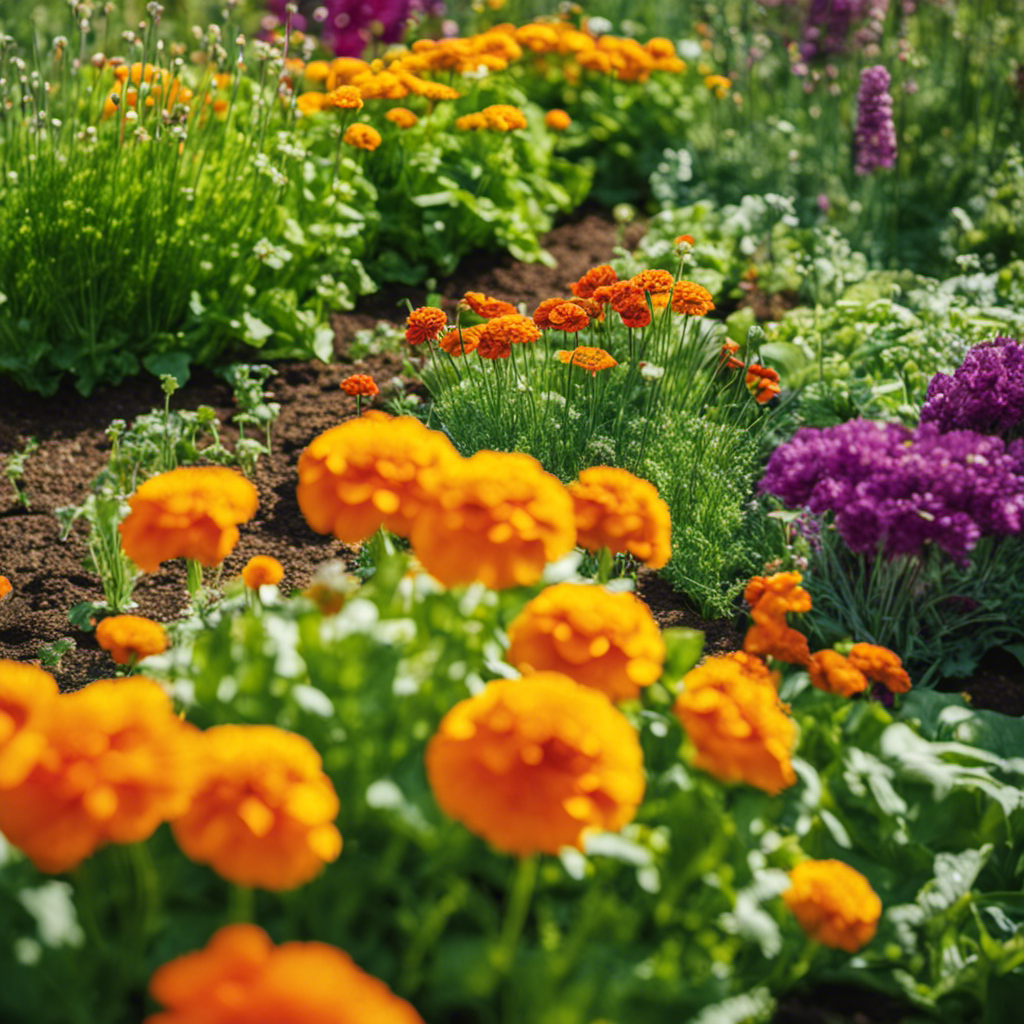
When it comes to managing pests in your organic garden, one effective method to consider is companion planting.
Companion planting involves strategically interplanting different species to deter pests and promote plant health. By incorporating pest repellent plants, such as marigolds, you can protect your susceptible crops from insects like nematodes, aphids, and whiteflies.
Mixing different types of plants together through interplanting techniques can confuse pests by masking the scent of their preferred host plants or attracting beneficial insects that prey on pests.
Biological Control
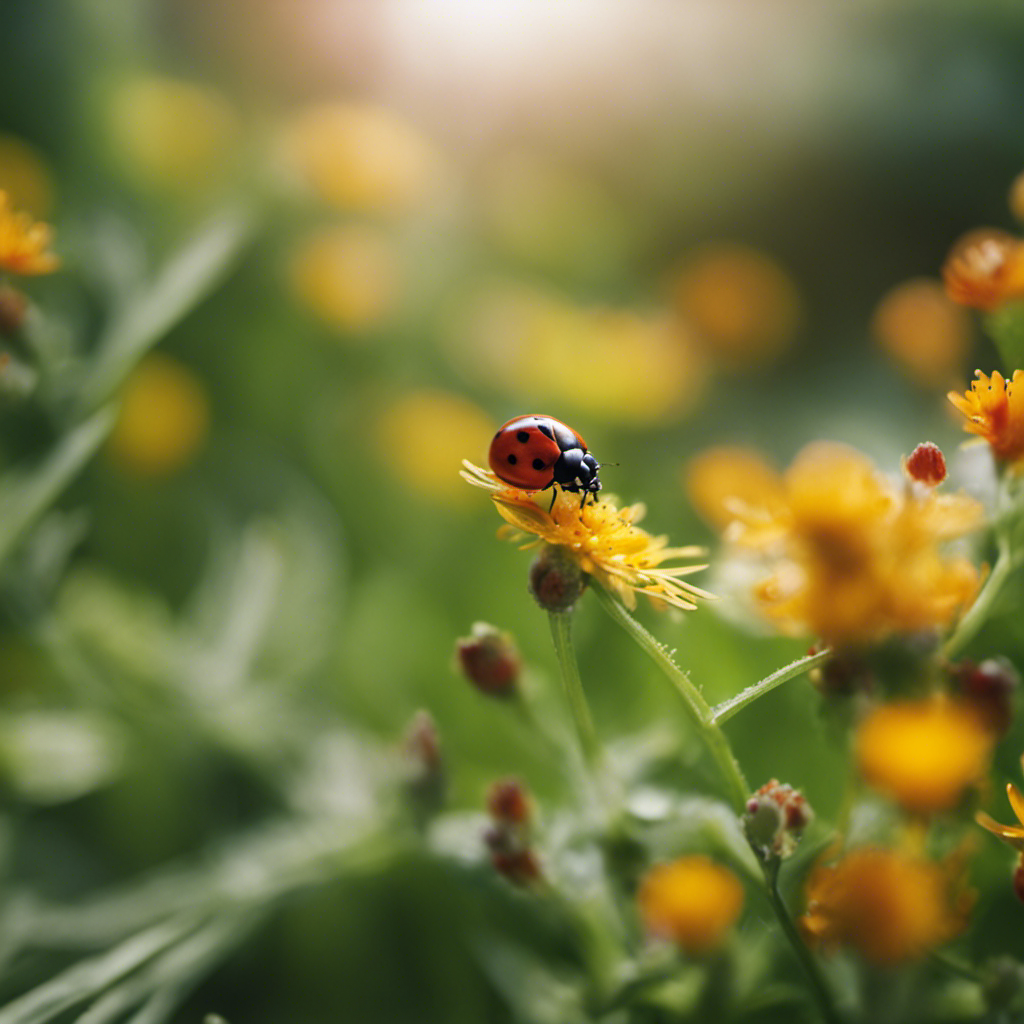
To effectively manage pests in your organic garden, you can utilize the method of biological control. This approach involves using natural predators or parasites to regulate pest populations, reducing the need for chemical pesticides and promoting ecological balance.
One way to implement biological control is by introducing natural predators like ladybugs, lacewings, and praying mantises into your garden. These beneficial insects feed on harmful pests, effectively controlling their populations. You can attract these predators by planting flowers that provide nectar and pollen, creating a welcoming environment for them.
Another method of biological control is the use of parasites. These parasites lay their eggs inside pest insects, and when the eggs hatch, they consume the host from the inside out, effectively eliminating the pest population. This natural approach reduces the reliance on chemical pesticides in your garden, creating a safer and healthier environment for both plants and beneficial insects.
Physical Barriers
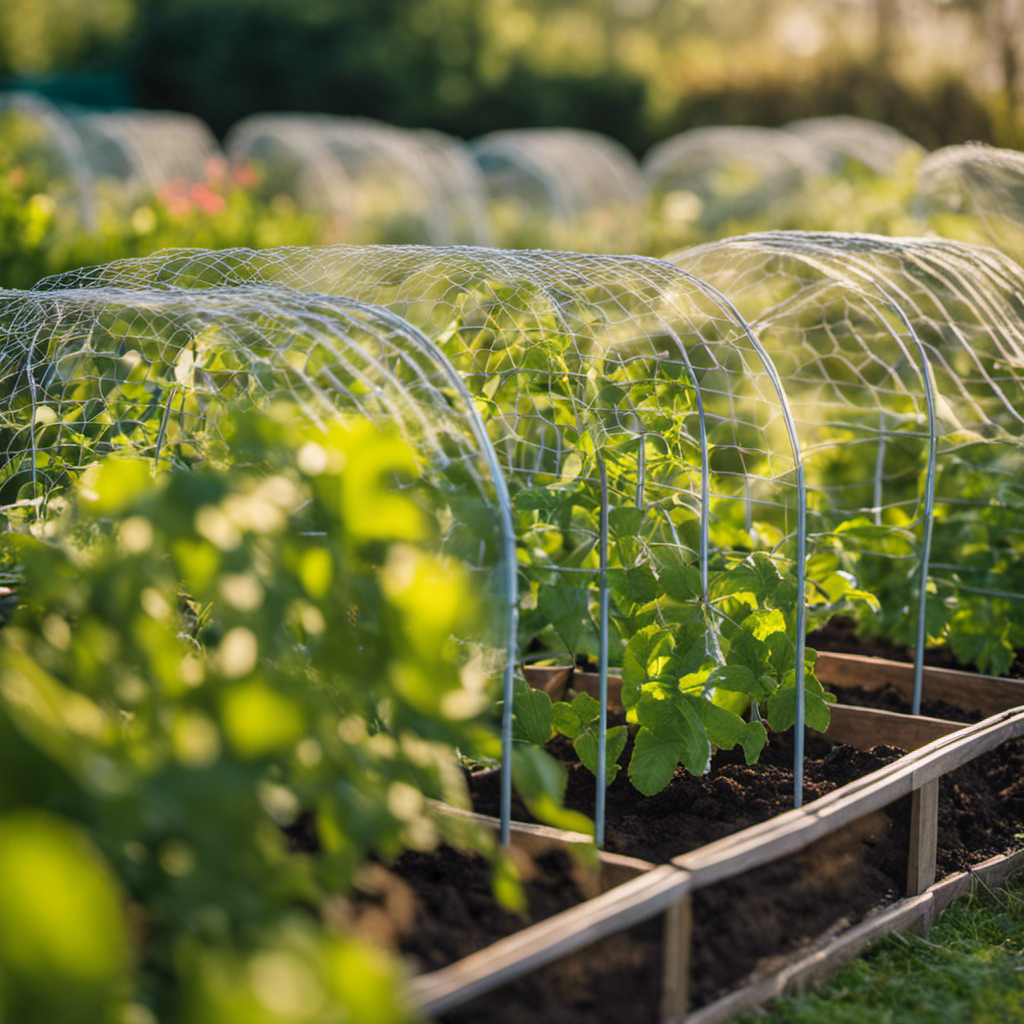
Are you wondering how to protect your organic garden from pests without relying on chemical pesticides?
One effective method is to use physical barriers. These barriers act as a shield between your plants and the pests, preventing them from infiltrating your garden.
One option is vertical gardening, where you grow your plants vertically on trellises or fences. This not only maximizes space but also creates a challenging obstacle for pests to overcome.
Another strategy is to choose pest-resistant plants. Certain plants, like marigolds, lavender, and mint, naturally repel pests. By incorporating these plants into your garden, you can discourage pests from attacking your crops.
Physical barriers offer an eco-friendly and sustainable approach to safeguarding your organic garden from pests.
Homemade Pest Sprays
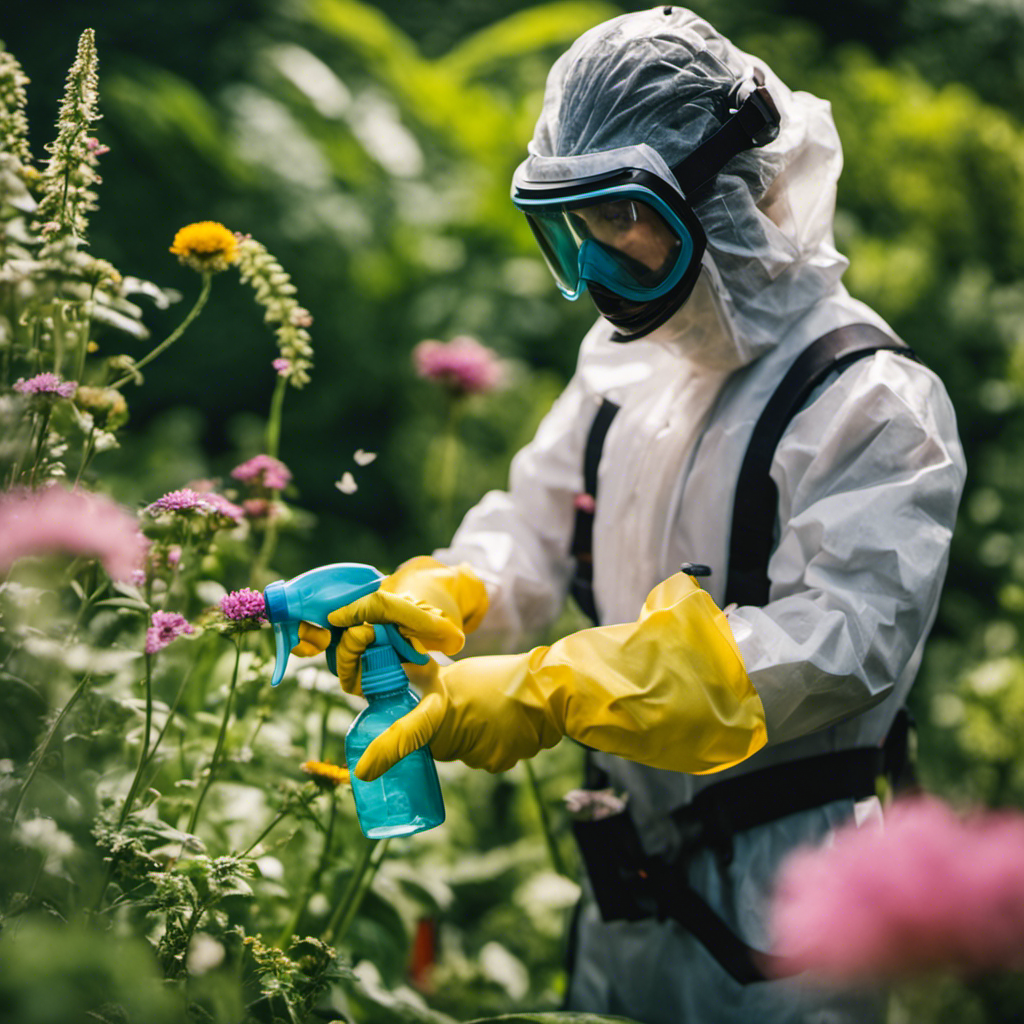
Protecting your organic garden from pests can be done effectively and naturally with homemade pest sprays.
These sprays are made from natural repellents that deter pests without causing harm to the environment or your plants.
One option is to make a garlic spray by blending garlic cloves with water and straining the mixture into a spray bottle. Garlic contains sulfur compounds that repel insects.
Another effective option is a neem oil spray, which is made by mixing neem oil with water and a small amount of dish soap. Neem oil, derived from the neem tree, has insecticidal properties.
Additionally, planting pest-resistant varieties can help minimize the need for pest sprays. These specially bred varieties are less attractive to pests, reducing the risk of infestations.
Crop Rotation
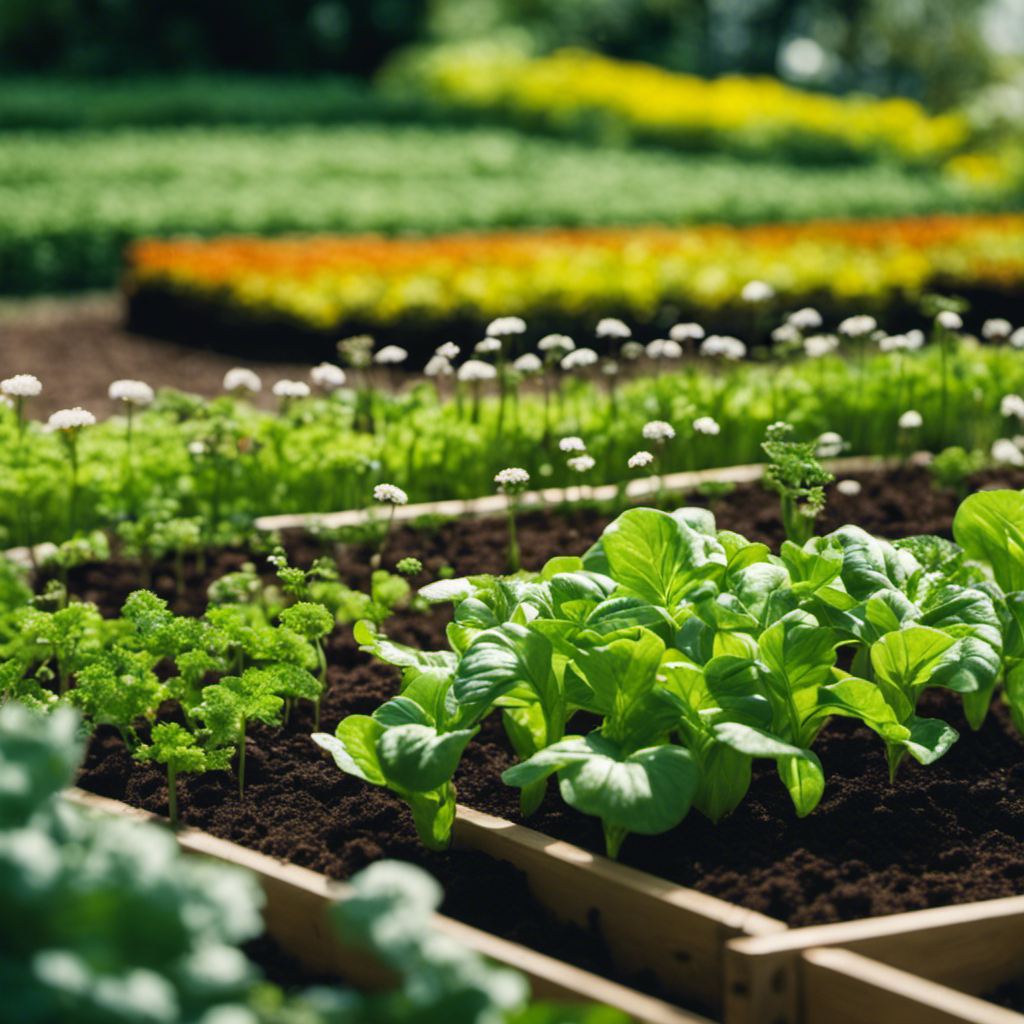
Implementing crop rotation is an important step in effectively managing pests in your organic garden. By rotating your crops, you can disrupt the life cycle of pests and minimize their impact on your plants. Here are four key benefits of implementing crop rotation:
-
Soil fertility: Crop rotation helps maintain soil fertility by diversifying the types of plants grown in a specific area. Different plants have different nutrient requirements, and rotating crops helps prevent the depletion of specific nutrients, ensuring a balanced and healthy soil.
-
Pest control: Certain pests have a preference for specific plant species. By rotating crops, you can reduce pest populations, as they won’t find their preferred host plants in the same location year after year.
-
Disease prevention: Crop rotation can also help prevent the buildup of soil-borne diseases. By rotating crops, you disrupt the life cycle of pathogens that can cause diseases in specific plant species, reducing the risk of infection.
-
Pest-resistant plant varieties: Implementing crop rotation allows you to incorporate plant varieties that are resistant to pests into your garden. By selecting and rotating these varieties, you can further reduce pest damage and maintain a healthy garden ecosystem.
Conclusion
By implementing eco-friendly methods such as companion planting, biological control, physical barriers, homemade pest sprays, and crop rotation, you can effectively manage pests in your organic garden.
These methods provide practical and science-based solutions that contribute to a healthier and more sustainable environment.
By embracing these techniques, you can enjoy a thriving garden while minimizing harm to the ecosystem.
So why not give them a try? Your garden and the planet will thank you.
